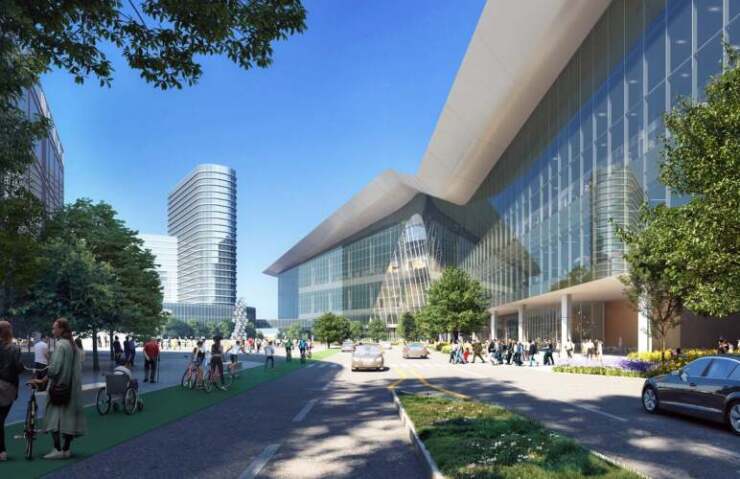The Dallas City Council on Wednesday approved the private placement of up to $223 million of debt, an initial step to finance the replacement of its convention center and improvements to Fair Park.
The special tax revenue obligations will be placed with qualified financial institutions or investors in October, according to Filicia Hernandez, the city's debt administrator. She added, Dallas plans to refund the short-term debt next year as part of long-term bond issuance totaling about $1.6 billion.

Money to pay off the debt will come from a hike in the city's hotel occupancy tax, which was
Over 30 years, PFZ revenue is estimated at about $2.2 billion, while the two-percentage-point increase in the hotel tax would bring in about $1.5 billion for the convention center and about $350 million for Fair Park, according to a
Dallas aims to replace its
The city opted to replace the convention center, which was facing as much as $700 million in deferred maintenance, with a larger facility that would attract more business.
So far, Bracewell has been hired as a co-bond counsel for the private placement, with Norton Rose Fulbright serving as co-disclosure counsel and HilltopSecurities and Estrada Hinojosa tapped as co-financial advisors. The cost of issuing the private placement is estimated at $2.24 million, according to a city council document.





